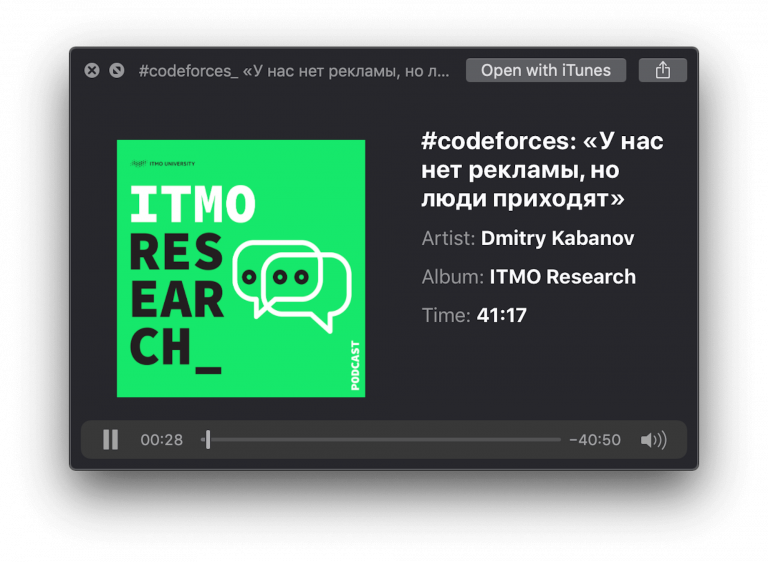25 QA Interview Questions and Answers
Our list of 25 frequently asked QA engineer questions and possible answers will help you prepare and feel more confident during your interview.
What does a quality assurance engineer do?
Most of the questions that recruiters ask candidates for testing positions are aimed at determining whether the candidate will be able to do the job well. So before we dive into typical interview questions, let’s briefly describe the main responsibilities and day-to-day functions of quality control specialists.
QA engineers ensure that the product meets all requirements and works correctly. They control all stages of software development, perform various types of tests and implement processes that allow errors to be identified at the earliest stages. Their daily responsibilities include:
Analysis of product specifications and business requirements
Development of test plans and creation of test cases
Conducting functional and non-functional testing
Generating bug reports and maintaining a bug tracking system
Learning new technologies and testing tools
Evaluation of test coverage and suggestions for its improvement.
Quality assurance roles have a wide range of titles:
Software Quality Assurance Engineer
Software Testing Engineer
Software Quality Engineer
QA Analyst
QA tester
Test Analyst
Manual QA
Sometimes different role titles may be used to highlight differences in responsibilities between positions. However, in most cases, employers can use any of these titles, implying the responsibilities of each of these roles.
What do interviewers look for in candidates for a QA position?
In the job descriptions of hiring managers, you can find requirements for technical knowledge, proficiency in certain tools, as well as the necessary soft skills. Most commonly required qualifications include:
Understanding of various software development methodologies (Waterfall, Agile, etc.)
Knowledge of QA methodologies and approaches to software testing (manual and automated testing, negative and positive, white and black box testing, functional and non-functional testing, integration and regression testing, etc.)
Experience working with a bug tracking system (Jira or similar)
Experience with test case creation software (TestRail or similar)
Good analytical and problem solving skills
Developed written and oral communication skills
Attention to detail
Most of the questions you will hear during an interview are aimed at determining whether you possess these hard and soft skills. Hiring managers will test your knowledge of QA terminology, ask about previous software testing experience, and perhaps ask more in-depth questions to understand how proficient you are with specific tools or technologies.
So, let’s look at the different types of QA interview questions and sample answers to them.
General issues
QA interviews often start with general questions. Hiring managers use them to learn more about your personality, motivation and career goals.
1. Tell us about yourself.
Possible answer: I work on web and mobile applications, making sure everything works well and all requirements are met. I use TestRail to create and execute test cases and write bug reports in Jira. I also work with tools such as Chrome Dev Tools, Xcode, Android Studio, ADB and Unix.
When answering a question like this, you should briefly describe your software testing experience. Be prepared that you may be asked several questions regarding the tools you mention.
2. Why do you want to leave your current job?
Possible answers:
The project I’m working on ends in a few months, so I’m looking for a new position.
I am attracted to new challenges and opportunities to learn new tools and technologies.
Give a clear reason, don’t talk badly about your coworkers or manager, or complain about your pay.
3. Why do you want to become a QA engineer?
Possible answer: New technologies have always been very interesting to me. I enjoy finding bugs and helping create quality products.
Here you can emphasize that you have a genuine interest in technology and QA.
Basic questions for a QA interview
These questions are designed to test your understanding of the basics of quality assurance in software development.
4. What is the difference between quality assurance, quality control and testing?
Possible answer: Quality assurance is the process of doing certain things to maintain quality and, most importantly, prevent bugs. Quality control is a set of measures to detect defects and ensure that the product meets all requirements. Testing is the process of finding bugs.
5. When do you think quality assurance activities should begin?
Possible answer: during the planning stage. A QA engineer should start work at the very beginning of a project to ensure the most efficient processes and identify problems as early as possible. This is important because the later errors are discovered, the more difficult, expensive, and difficult it will be to fix them.
6. What is the difference between validation and verification?
Possible answer: verification is the assessment of a product for compliance with requirements. It answers the question: “Are we making the product right?” Validation is the process of checking whether a product meets the actual needs and expectations of the user; it answers the question: “Are we making the right product?”
7. Describe the life cycle of a bug in your company.
Possible answer: at first the bug has the status “Open”. It then goes to the developers who fix it and the status changes to “Under Development”. After the bug is fixed, it moves to the “In testing” status. We try to reproduce it and, depending on the results, change the status to either “Closed” or “Reopened”.
8. List the main components of a bug report.
Possible answer: The bug report should contain:
Project name
Bug name
Description indicating steps to reproduce the bug; actual and expected result
A priority
Environment
Applications (screenshots, videos or log files)
Responsible (the one who will fix the bug)
Questions about quality assurance
These types of questions will help the interviewer evaluate your understanding of basic QA concepts and knowledge of various testing methodologies.
9. What are examples of functional and non-functional testing?
Possible answer: Functional testing checks what the system does and includes types of testing such as smoke testing, integration testing, regression testing, system testing, and acceptance testing. Non-functional testing analyzes how the system works. Examples of non-functional testing are load testing, stress testing, performance testing, compatibility testing and scalability testing.
10. What is negative and positive testing?
Possible answer: In positive testing, we use the correct input data and compare the results obtained with the expected ones. That is, we consider only positive scenarios, for example those that an ordinary user is likely to do. In negative testing, we use invalid input and verify that the system will not accept it and produce the correct error message. These are negative scenarios that the average user is unlikely to perform during normal use.
11. What is the difference between load and stress testing?
Answer: Load testing simulates the expected load on an application, while stress testing analyzes its performance under heavy loads that exceed its normal operational capabilities.
12. Explain the difference between white and black box testing?
Possible answer: Black box testing is a methodology in which the tester does not know the source code of the application and relies only on the requirements. White box testing implies that the tester knows the source code and internal structure of the system. Gray box testing combines both approaches.
In my work, I primarily focus on black box testing, but I am also familiar with gray box testing. For example, I have experience testing databases using SQL.
Questions about experience and background
In addition to testing candidates’ theoretical knowledge of quality assurance, each interview asks questions about their background and experience in testing. Here are examples of such questions:
13. What software have you tested before?
Possible answer: I worked on electronic signature software, web and mobile applications for managing job searches, and accounting software.
14. What did you do on your last project?
Possible answer: I tested a variety of devices and platforms, including iOS, Android, Windows, and Mac. My responsibilities included functional and user interface testing. In my work, I used tools such as Chrome DevTools, Android Studio, Jira and TestRail.
15. Have you used automation tools in your work?
Possible answer: no, I have not yet used automation tools in my work. But recently I started taking courses on test automation in Python.
16. Have you worked in Agile or Waterfall projects?
Possible answer: I worked on projects using the Agile methodology. We used the Scrum framework to work as a team.
17. What bug tracking tools have you used in the past?
Possible answer: I filed bug reports in Jira.
18. Tell us about the most serious bug you found on your project.
Possible answer: I once discovered that when a user logs out, it is possible to return to the login page by clicking the back button.
Of course, you can report any interesting bug you find. The main thing is to prepare several examples and be ready to discuss them.
19. Do you have experience testing APIs?
Possible answer: I have experience testing REST APIs. I used Postman to make test requests.
20. Have you used SQL in your work?
Possible answer: I used SQL in test cases, such as checking whether a new user record was created in the database when a new user created an account, or whether data was updated when a user changed their personal information in the application.
The answers to all of these sample questions may seem simple. Obviously, you know what projects you’ve worked on and what tools you’ve used. However, it is important to think through your answers in advance and prepare specific examples so that no question can take you by surprise.
In-Depth Questions
Interviewers also ask deeper questions that help them understand how fully you understand best quality practices and assess how you would respond when faced with challenges on the job.
21. How would you test a toaster/pencil/web form with some kind of input?
Possible answer: I will first analyze the requirements and become familiar with how it is expected to work. Then I’ll start with functional positive test cases and test the following:
Does the toaster turn on and off?
Does it heat up to the right temperature?
Is it possible to put the required amount of bread in it?
Does the power automatically turn off when the toast is ready?
[…]
I will then continue with negative functional testing and see what happens if users use the toaster in a way that is not what the manufacturer intended.
[…]
Examples of test cases for checking text fields
22. What would you do if you had to complete 80 test cases in five days, but on the first day you only completed six?
Possible answer: I would continue to run tests and tell the QA manager that we need more time or people to complete all the work on time.
23. What should you do if the developer returned a bug to you and marked it as “not reproducible”?
Possible answer: First, I will try to reproduce the bug on the device on which it was discovered, following the steps described in the bug report and using the appropriate environment, platform and build. Then I will try to reproduce it on other devices to make sure that the error is not related to the device. If the bug continues to reproduce, I will add my comments and pass the bug report back to the development team. If not, I’ll add a comment and close the bug.
24. What will you do if a developer returns a task/bug to you with the comment “works as intended” / “not a bug”?
Possible answer: I would double-check the requirements. If this is indeed the expected result, I would add a comment and close the task. Otherwise, I would add my comments and reassign the bug to the developers. If the requirements are missing, I would ask the product manager for clarification and then proceed accordingly.
25. What would you do if you had to write test cases without clearly described requirements?
Possible answer: I would try to ask the product manager about the expected requirements and behavior of the product. I would also look at emails that might contain useful information and check old test cases. I would look for information about product features in the company’s documentation system. Additionally, I would explore similar features in other apps.
The key to success in an interview is preparation. Think through your answers and prepare examples of how you have used a particular tool or technology. And remember that it is not only important What you say, but also How you say it. So take the time to practice with a mentor or friend. After this, when you meet with the hiring manager, you will feel much more confident and calm.





